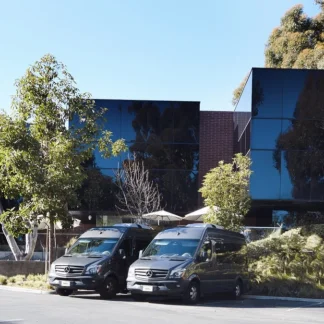Hotel California by the Sea
Hotel California by the Sea - 17th Street is dedicated to provide outpatient ser...
South Coast Behavioral Health, in Costa Mesa, California, is a luxury drug and alcohol rehab for adults. They offer intervention services, medically supervised detox, and inpatient, outpatient, and aftercare services, including gender-specific and dedicated programming for young adults and persons with co-occurring addiction and mental illness.
South Coast Behavioral Health provides comprehensive addiction recovery services for adults in Costa Mesa, California. Gender-specific and specialized programming is available for young adults and persons with co-occurring addiction and mental illness. Intervention services are also available.
Medically Supervised Detox Clients undergoing detox receive round-the-clock medical supervision and may be prescribed FDA-approved medication to ease withdrawal symptoms and prevent potentially serious complications.
Inpatient Program The inpatient program allows clients to focus on their recovery in a private, home-like setting with luxury amenities, including onsite fitness and recreational facilities. Clients receive medical and mental health assessments, personalized care planning, and comprehensive case management. They also engage in intensive, trauma-informed individual, group, and family counseling and robust recovery-focused life skills training addressing topics such as coping, wellness, self-care, anger and stress management, and relapse prevention. An array of evidence-based complementary therapies is available, including EMDR, yoga, adventure therapy, creative arts therapy, and recreational therapy.
Outpatient and Aftercare Services Their outpatient programs ensure a complete continuum of care aligned with clients’ evolving needs, including partial hospitalization (PHP), day treatment, intensive outpatient (IOP), standard outpatient (OP), and sober living. Their aftercare services may include peer coaching, career counseling, 12 step program facilitation, and referrals for medical, mental health, and social services.
Accreditation and Payment South Coast Behavioral Health is certified by LegitScript and accredited by CARF. They accept private insurance, financing, and self-pay.
Contact us for more information: (866) 811-5249

Connect with South Coast Behavioral Health by calling their admissions team directly.
(866) 811-5249 Website Get DirectionsThe Commission on Accreditation of Rehabilitation Facilities (CARF) is a non-profit organization that specifically accredits rehab organizations. Founded in 1966, CARF's, mission is to help service providers like rehab facilities maintain high standards of care.
CARF Accreditation: Yes
EMDR is a therapeutic modality originally developed to help process trauma. In an EMDR session, a patient is prompted to undergo eye movements that mimic those of REM sleep. This is accomplished by watching a therapist's finger move back and forth across, or following a bar of light. The goal is repetitive sets of eye movements that help the brain reprocess memory, which can significantly reduce the intensity of remembered traumatic incidents. Associated memories can heal simultaneously, leaving patients significantly calmer, more stable, and more emotionally relaxed.
Group therapy is any therapeutic work that happens in a group (not one-on-one). There are a number of different group therapy modalities, including support groups, experiential therapy, psycho-education, and more. Group therapy involves treatment as well as processing interaction between group members.
In individual therapy, a patient meets one-on-one with a trained psychologist or counselor. Therapy is a pivotal part of effective substance abuse treatment, as it often covers root causes of addiction, including challenges faced by the patient in their social, family, and work/school life.
Recreational therapy (aka therapeutic recreation) uses creative and fun activities to help with addiction recovery. Recreational therapists lead patients in entertaining and engaging activities like sports or games; art (drawing, painting, sculpture); drama, music, and dance; and/or community outings (field trips) to improve patients' physical, social, and emotional well-being.
Group therapy is any therapeutic work that happens in a group (not one-on-one). There are a number of different group therapy modalities, including support groups, experiential therapy, psycho-education, and more. Group therapy involves treatment as well as processing interaction between group members.
In individual therapy, a patient meets one-on-one with a trained psychologist or counselor. Therapy is a pivotal part of effective substance abuse treatment, as it often covers root causes of addiction, including challenges faced by the patient in their social, family, and work/school life.
Recreational therapy (aka therapeutic recreation) uses creative and fun activities to help with addiction recovery. Recreational therapists lead patients in entertaining and engaging activities like sports or games; art (drawing, painting, sculpture); drama, music, and dance; and/or community outings (field trips) to improve patients' physical, social, and emotional well-being.
In individual therapy, a patient meets one-on-one with a trained psychologist or counselor. Therapy is a pivotal part of effective substance abuse treatment, as it often covers root causes of addiction, including challenges faced by the patient in their social, family, and work/school life.
Recreational therapy (aka therapeutic recreation) uses creative and fun activities to help with addiction recovery. Recreational therapists lead patients in entertaining and engaging activities like sports or games; art (drawing, painting, sculpture); drama, music, and dance; and/or community outings (field trips) to improve patients' physical, social, and emotional well-being.
Recreational therapy (aka therapeutic recreation) uses creative and fun activities to help with addiction recovery. Recreational therapists lead patients in entertaining and engaging activities like sports or games; art (drawing, painting, sculpture); drama, music, and dance; and/or community outings (field trips) to improve patients' physical, social, and emotional well-being.
Hotel California by the Sea - 17th Street is dedicated to provide outpatient ser...
Yellowstone Recovery is a nonprofit drug and alcohol addiction recovery center i...
Nancy Clark and Associates, located in Newport Beach, California, offers justice...
National Treatment Centers is a private rehab located in Newport Beach, Californ...